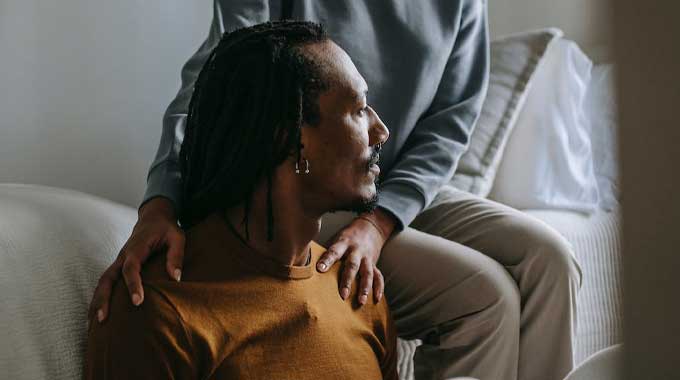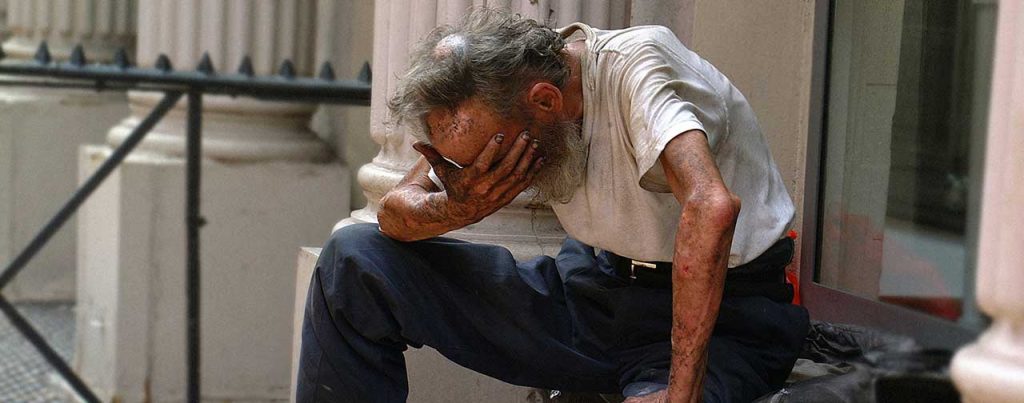Dealing with an addiction to drugs can be very challenging. It can affect someone involved in drug abuse as well as their loved ones. Someone may feel hopeless when it comes to seeking addiction treatment, attempting a recovery process, or wanting to stop drug abuse.
If you are wondering if and how rehab programs work in dealing with drug use, this blog may help you understand a few ways in which it does.
Understanding Addiction
Addiction is considered a neuropsychological disorder, meaning when someone is struggling with addiction there is a persistent dysfunction in their brain system.
The part of the brain system that affects memory, motivation, and reward is altered by repetitive stimulation or drug use. The result is an increased craving for a substance or behavior, and weakened self-control in pursuing more of the substance or behavior despite its negative consequences.
Addiction can also fall under terms like dependency, compulsion, obsession, or habit in consuming a substance or doing an action. When someone does not have control over using or doing something to the point where it is harmful to them, they are probably struggling with addiction.
Click here If you are looking for rehab in Orange County
Types of Addiction
Addiction is not only related to substance abuse. Although drug or alcohol addiction is well known, addiction can also be associated with things like sex, food, working, the internet, or even solvents.
The types of addiction include the following:
- Behavioral addiction, including shopping, sex, gambling, and video gaming
- Substance addiction, usually to a chemical or drugs like tobacco, heroin, cocaine, marijuana, alcohol, and others
- Impulse addiction, usually evolves from impulse control disorders, that include actions such as stealing, lying, or destructive behavior.
In the case of drug addiction, a persistent or compulsive drug-seeking behavior may come about, which has risks beyond consuming the substance. It can cause someone to be involved in dangerous or risky situations that they would not pursue if they didn’t suffer addiction to the substance.
What Is the Cause of Drug Addiction?
There are many reasons why someone becomes addicted to a substance or a behavior. An addiction to drugs can begin for different reasons than an addiction to gambling, for example.
sensation or a pleasurable effect
Substances like drugs, alcohol, and nicotine can alter the way someone feels. It can do so both physically and emotionally. Often a person experiences a ‘high’ when taking these substances, and the sensation creates a strong urge to use them again.
One example is opiates, which can cause someone to experience less anxiety by relaxing muscles and inhibiting behavior. A person may feel such euphoria and relaxation that they are strongly urged to stay in that state.
Mental high
A type of behavioral addiction like gambling can result in a high equivalent to that of taking a substance, in this case occurring mentally. When winning, a person gambling experiences a mental sensation that causes them to repeatedly try and obtain that mental high again. It can easily lead to a habit that is very difficult to quit.
withdrawal
Addiction to a behavior or substance has withdrawal consequences when it is stopped. It can be very uncomfortable and cause someone to avoid stopping as it’s easier to continue in a stimulated state.
Severe withdrawal from substance abuse can be physically and emotionally intense, and can easily lead to overdose or death. The National Institute on Drug Abuse records around 92,000 deaths from drug-involved overdose in the United States in 2020.
Tolerance
Anyone consuming a substance in repetition or carrying out an action repeatedly becomes used to it. The brain also becomes used to a substance, causing it to develop tolerance to the regular amount. It will need more of that amount in order to chemically balance out, often causing people to need more of a substance to achieve the same effect.
Tolerance is known to lead to the abuse of drugs or alcohol abuse, where a person consumes much more than what is recommended, with alarming consequences.
Mental health
Abusing drugs or alcohol often has underlying causes. Behind the physical or psychological effect or stimulation that the drug provides often lies difficult emotions or situations that a person may want to block out. Addiction can be a way of coping with mental illnesses, trauma, or symptoms arising from these, like depression or anxiety. Stress, unemployment, poverty, or emotional and professional pressure can trigger addiction as a person may not be able to handle or cope with their reality.
Drug use disorders may develop if addiction is not addressed. The United Nations’ World Drug Report of 2019 counted 35 million people worldwide suffering from drug use disorders.
What Are the Ways of Rehabilitating a Drug Addict?
It is important to remember that addiction affects someone’s psychological, physical, and emotional health. This is why professional treatment advice at a drug rehab or alcohol rehab can be not only beneficial but sometimes crucial to someone recovering.
Treatment programs often depend on the type of drug use. For example, narcotics like opiates are treated differently from cannabinoids like marijuana, and depressants like alcohol require different detoxification than hallucinogens like ecstasy.
The Benefits of Rehab
It can be vital to commit to a specific treatment center that has the right drug addiction treatment options for long-term sobriety.
Inpatient or Outpatient Treatment Centers
Addiction recovery is often dealt with through outpatient treatment. This means that a person will not reside at a rehab facility but will instead come to the center for check-ups and perhaps counseling regularly.
The opposite of this kind of treatment is inpatient treatment, where a person resides inside a drug rehab center and undergoes all the therapies and treatment practices that the treatment centers provide.
Although both outpatient and inpatient treatments are effective in different ways, residential treatment centers have the advantage of supervision or available help from treatment providers 24/7. It also places a person undergoing addiction treatment to be in an environment of sobriety, which is known to help prevent relapse and create healthy habits.
Medical Support
Chronic drug use may cause a person to need medical detox to remove the substance from their body. Medical detox involves a reduction of the substance they are addicted to over time and can sometimes require the use of other medications or drugs as a substitute.
Addiction rehab can provide the medical supervision needed for a detox, as well as 24/7 healthcare for the physical symptoms someone may experience during withdrawal.
Mental Health Services
In dealing with drugs or alcohol addictions, psychological and mental health is very important. A treatment provider at drug rehab can diagnose any co-occurring mental illness and provide treatment for that.
Rehab facilities offer multiple treatment options and therapies that can help someone struggling with drug addiction to identify causes for their addiction and address these too. That means that it gives a person a chance for long-term health, where they can understand the nature of their addiction and have tools for dealing with it when a treatment program is over.
Caring, Counseling, and Therapy for Drug Addiction
A certified addiction professional or treatment provider can suggest and provide various kinds of therapies that can support someone as they undergo the treatment process at an addiction rehab.
In battling substance use disorders, a person may undergo individual therapy, which is a private and convenient solution to receive one-on-one guidance in a safe setting. In cognitive behavioral therapy, self-analysis helps someone to recognize when they began substance abuse and uncover the reasons why they started.
This kind of therapy targets your behavioral responses to triggers and guides healthier responses to these triggers. Strategies of redirecting time constructively are taught through individual behavioral therapy at drug rehab.
Group therapy is another part of an addiction treatment program, where participants share the common factor of having struggled with addiction. A treatment provider leads the group, while empathy and emotional healing develop during this kind of therapy. It also establishes a sense of support among peers.
Addiction treatment centers often have support groups, where someone may have a sponsor or a person who has had more time in recovery from substance use, supporting them. As another form of group therapy, support groups have proven very beneficial in decreasing the chances of a relapse.
Family therapy sessions are another treatment option available at a treatment facility. Someone may seek treatment for the way they have been affected by a family member’s addiction, and rehab treatment can provide that. As family members are often crucial in supporting a person through recovery, treatment plans include it as an option for anyone seeking treatment at a rehab facility.
Other therapies available at treatment facilities include:
- Dialectical Behavior Therapy (DBT)
- Acceptance and Commitment Therapy (ACT)
- Emotion-Focused Therapy (EFT)
- Mindfulness
- Transactional Analysis – Existential Therapy
- Psychoeducation
The addiction rehabilitation process encourages someone to place a structure in their daily life. There are daily habits that are developed through productive and therapeutic activities to replace substance use, as well as counseling sessions to reduce distractions.
Because treatment options are individual and can be catered to personal needs, someone has the chance to develop new habits and goals. These are essential in building a strong foundation for sobriety and may have been missing while someone was suffering from drug addiction.
Start Addiction Treatment
Our drug rehabilitation facility offers substance abuse treatment by highly skilled treatment providers. If you are seeking treatment for yourself or a loved one, Cornerstone is here to help.
A wide range of treatment options will ensure that supportive, compassionate care is given to all areas of your well-being, including your ongoing recovery after rehab. Our medical professionals use evidence-based treatments tailored to you personally, so we can give you the best chance for recovery and a healthy, happy life.






